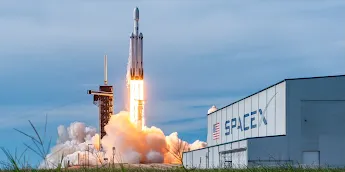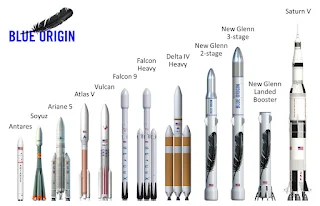12 Space Tourism Companies That Will Send You to Space
INTRODUCTION
The dream of space tourism is no longer just a science fiction fantasy. With recent advancements in technology and the involvement of private companies in the space industry, commercial space travel is now within reach. Whether you want to experience zero gravity, travel to the International Space Station, or even embark on a journey to the Moon, space tourism companies are making it possible. Here, we explore 12 companies that are turning space tourism into a reality, highlighting their unique offerings, progress, and future goals.
1. SpaceX
SpaceX, founded by Elon Musk in 2002, has rapidly become one of the most recognizable names in the space industry. Known for its reusable rockets and ambitious plans for interplanetary travel, SpaceX has already sent astronauts to the International Space Station (ISS) as part of NASA’s Commercial Crew Program. For space tourists, SpaceX offers trips to low Earth orbit (LEO) aboard the Crew Dragon spacecraft, with future plans for lunar missions and eventually journeys to Mars.
2. Blue Origin
Founded by Jeff Bezos, Blue Origin aims to make space accessible to everyone. The company’s suborbital spacecraft, New Shepard, is designed for short space flights that provide a few minutes of weightlessness and breathtaking views of Earth. In July 2021, Blue Origin successfully completed its first crewed flight with Bezos himself on board.
With commercial suborbital flights now available, Blue Origin is working towards more ambitious projects like the New Glenn orbital rocket.
3. Virgin Galactic
Richard Branson's Virgin Galactic is perhaps the most famous name in the realm of space tourism. The company’s SpaceShipTwo offers suborbital flights that include several minutes of weightlessness and stunning views of the Earth’s curvature. In July 2021, Branson himself took part in a successful test flight, paving the way for commercial operations. Virgin Galactic aims to
make space tourism affordable and routine, with a current ticket price of around $450,000.
4. Axiom Space
Axiom Space is focused on building the world’s
first commercial space station. The company offers private missions to the ISS, with plans to eventually replace the ISS with its own station by the end of the decade. Axiom Space provides comprehensive training for space tourists, who can experience life aboard the ISS and conduct scientific experiments. The company's long-term vision includes the development of a commercial orbital station that will serve as a hub for tourism, research, and manufacturing.
5. Boeing
Boeing, an aerospace giant, is also a key player in space tourism through its CST-100 Starliner spacecraft. Designed to transport astronauts and private citizens to the ISS, the Starliner will offer space tourists the chance to experience life in orbit. Although initial test flights have faced some setbacks, Boeing remains committed to launching commercial spaceflight services in the near future.
6. Orion Span
Orion Span has bold plans to launch Aurora
Station, a luxury space hotel, into low Earth orbit. This modular space station is intended to accommodate tourists for short stays, allowing them to experience weightlessness and view the Earth from space. Orion Span's concept promises to make space tourism not only adventurous but also luxurious, with plans to offer stays at around $9.5 million for a 12-day experience.
7. Space Adventures
Space Adventures is one of the original space tourism companies, having sent several private individuals to the ISS aboard Russian Soyuz spacecraft since 2001. The company offers unique spaceflight experiences, such as spacewalks and lunar flybys. Space Adventures plans to resume sending tourists to the ISS, making it a key player in the revival of orbital tourism.
8. Zero Gravity Corporation (Zero-G)
For those looking to experience weightlessness
without leaving the atmosphere, Zero Gravity Corporation offers parabolic flights aboard a specially modified Boeing 727 aircraft. These "zero-gravity" flights simulate the feeling of weightlessness experienced in space. While not technically space tourism, Zero-G provides an accessible and thrilling experience for aspiring space travelers.
9. Space Perspective
Space Perspective offers a unique and more relaxed
approach to space tourism, using a high-altitude balloon to lift a pressurized capsule into the stratosphere. The company's Spaceship Neptune provides a six-hour journey, ascending to an altitude of around 100,000 feet (30 kilometers), where passengers can enjoy stunning views of the Earth. This gentle ascent offers an alternative for those who may not be interested in the high-speed rockets used by other companies.
10. World View Enterprises
Similar to Space Perspective, World View Enterprises uses high-altitude balloons to lift tourists to the edge of space. The company's Voyager capsule offers a 5-6 hour journey, complete with a luxury cabin, panoramic views, and even a bar. World View’s approach focuses on making space tourism more sustainable and accessible to a broader range of people.
11. Rocket Lab
Rocket Lab, a New Zealand-American company, is primarily known for launching small satellites, but it has recently set its sights on space tourism. The company is working on a suborbital spacecraft named Neutron, which is expected to carry both cargo and passengers to space. Although details about Rocket Lab’s tourism plans remain under wraps, the company’s expertise in rocket launches makes it a promising contender.
12. Starlab (NanoRacks)
Starlab is a commercial space station initiative by NanoRacks, with plans to replace the ISS when it retires. The station will include a tourism module designed specifically for visitors. With support from Voyager Space and Lockheed Martin, Starlab aims to create a sustainable and accessible space tourism destination.
FAQs
Which company offers the cheapest space tourism experience?
Currently, Virgin Galactic and Blue Origin offer the most affordable options, with suborbital flight prices around $450,000.
Conclusion
Space tourism is rapidly evolving from science fiction to a tangible reality, with numerous companies offering unique experiences. Whether you're seeking a brief encounter with zero gravity, an orbital adventure, or a luxury space hotel stay, there's something for every space enthusiast. As these companies continue to push the boundaries of space travel, the dream of experiencing the cosmos may soon be within reach for more people than ever before.















.webp)











Comments
Post a Comment